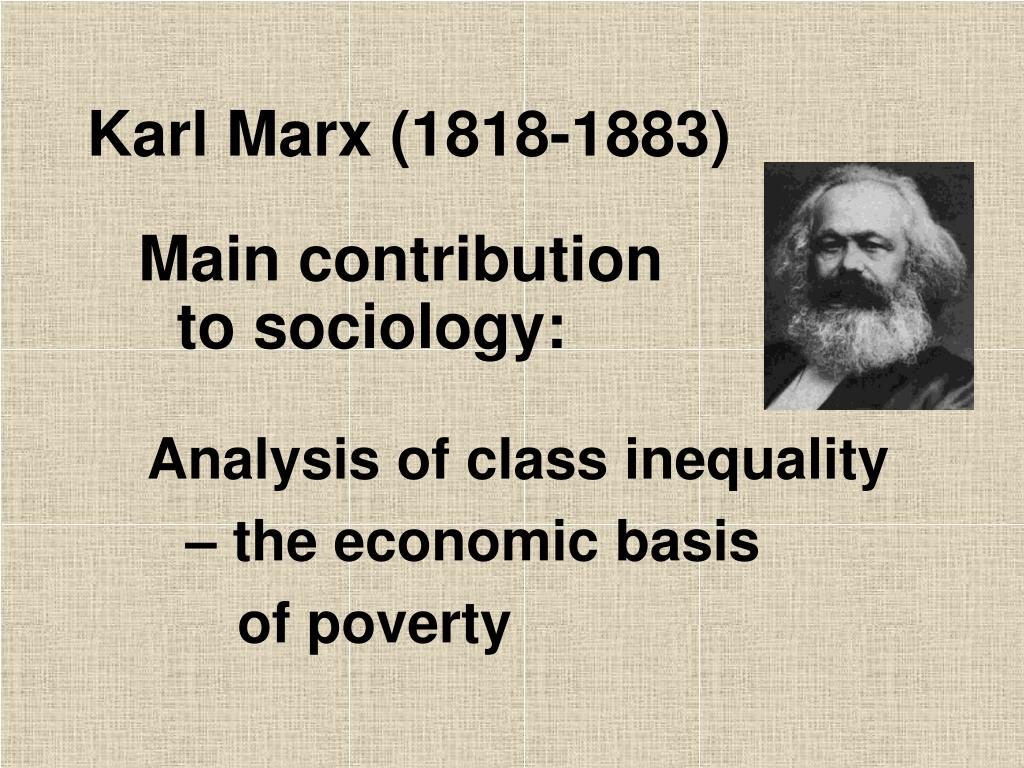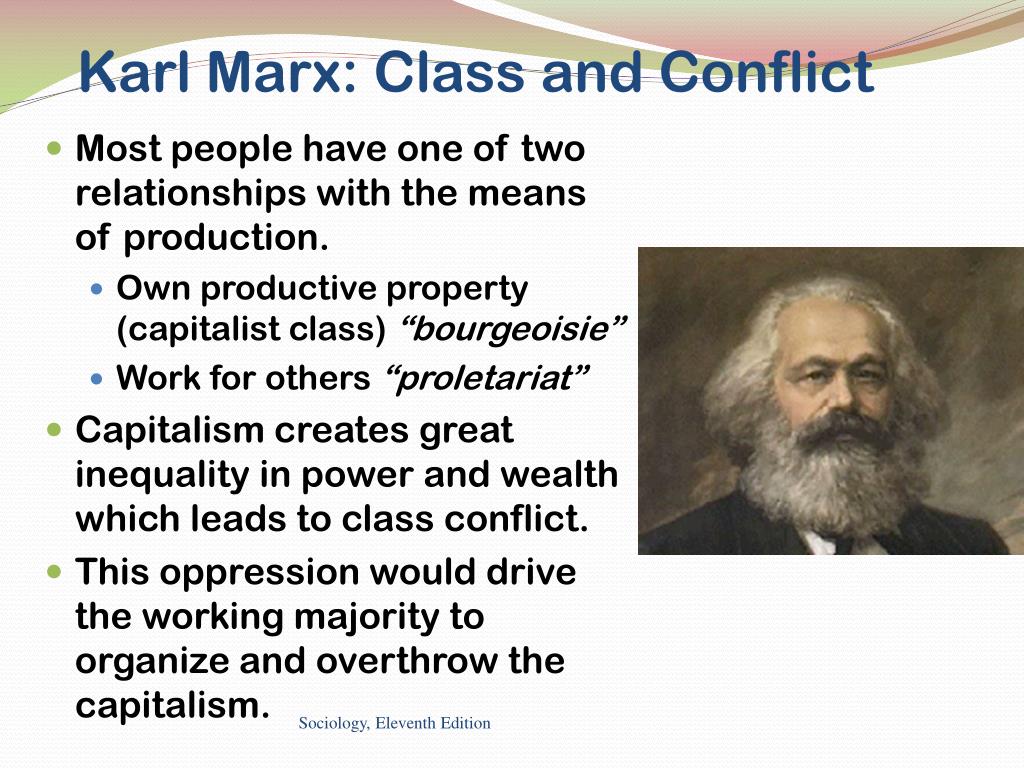Imagine a world without capitalism, a world where the means of production are owned by the people, not by the wealthy few. This was the vision of Karl Marx, a German philosopher, economist, and sociologist whose ideas have profoundly shaped the course of history. His seminal work, “The Communist Manifesto,” remains one of the most influential political texts ever written, inspiring revolutions and sparking ongoing debates about the nature of society, economics, and power.

Image: www.slideserve.com
Marx’s ideas, though complex and often controversial, continue to be relevant for understanding modern society. His analysis of capitalism’s inherent contradictions, his critique of class inequality, and his vision of a classless society resonate even today. This article delves into the life and work of Karl Marx, exploring his key concepts, historical influence, and contemporary relevance.
Early Life and Influences
Born in Trier, Prussia, in 1818, Karl Marx was exposed to the industrial revolution’s early stages, which profoundly influenced his thinking. He earned a doctorate in philosophy from the University of Jena in 1841, but his radical political views prevented him from securing a traditional academic career. Instead, he became a journalist and editor, using his writing platform to critique the prevailing social and political conditions of his time.
Marx’s early work was heavily influenced by the ideas of German philosopher G.W.F. Hegel, who emphasized the importance of historical development and the dialectical process, where opposing ideas clash and lead to synthesis. Marx adopted Hegel’s dialectical method but applied it to material conditions, arguing that economic factors drive history, not just abstract ideas.
Key Concepts and Theories
Historical Materialism
One of Marx’s most influential theories is historical materialism, which posits that history unfolds based on material conditions. He argued that the means of production – the tools, resources, and technology used to create goods and services – shape society’s structures and institutions, including its social classes, political systems, and ideology. Marx believed that each historical epoch is characterized by a particular mode of production, from ancient slave societies to feudalism and eventually capitalism.

Image: www.slideserve.com
Capitalism and Class Struggle
Marx saw capitalism as a system based on the exploitation of labor. He argued that workers (the proletariat) produce the value of goods and services while the capitalists (the bourgeoisie) own the means of production and extract surplus value, leaving workers with only a fraction of the value they create. This creates a fundamental conflict of interest between classes, leading to class struggle. Marx predicted that this struggle would culminate in a socialist revolution, where the proletariat overthrow the capitalist class and establish a classless society.
Alienation
Marx believed that capitalism alienated workers from their labor, their products, others, and themselves. He argued that under capitalism, work becomes a means of survival, devoid of meaning or creativity, and workers become separated from the products of their labor, which they do not control. This alienation, according to Marx, leads to social fragmentation, psychological distress, and a sense of powerlessness.
Influence and Impact
Marx’s ideas have had a profound impact on history, inspiring revolutions, shaping socialist movements, and influencing debates about economic justice, social inequality, and the nature of capitalism. The Russian Revolution of 1917, which resulted in the establishment of the Soviet Union, was one of the most direct and impactful outcomes of Marx’s influence.
While Marx’s vision of a classless society remains unrealized, his critique of capitalism has helped shape labor movements, social welfare policies, and the development of social democratic ideologies. His focus on the importance of economics as a driving force in history and the inherent contradictions within capitalist systems continues to inform contemporary economic and sociological analysis.
Contemporary Relevance of Marxist Thought
While the fall of the Soviet Union and the end of the Cold War seemed to mark the decline of Marxist thought, its relevance continues in a globalized and interconnected world. Contemporary debates about income inequality, wealth concentration, the rise of precarious work, and the exploitation of workers in the globalized economy echo Marx’s critique of capitalism.
Marx’s ideas are particularly relevant in analyzing the increasing power of corporations, the concentration of wealth in the hands of the few, and the growing gap between the rich and the poor. His concepts of alienation, commodification, and exploitation offer frameworks for understanding the social and economic challenges that continue to plague modern societies.
Criticism and Debate
Marx’s theories have also faced significant criticism, particularly from those who argue that socialism has failed in practice, leading to economic stagnation and authoritarianism. Critics also point to the impracticality of creating a truly classless society, arguing that human nature inherently leads to inequality and power disparities.
Despite these criticisms, Marx’s ideas remain a powerful lens for analyzing social and economic systems, and his critique of capitalism continues to stimulate critical thinking and debate about the nature of power, wealth, and social justice.
Sociologist Karl Marx
Conclusion
Karl Marx’s legacy is one of enduring influence and ongoing debate. His ideas have shaped the course of history, inspired revolutions, and sparked critical analysis of capitalist societies. While the world has changed drastically since Marx’s time, his insights into the challenges and contradictions of capitalism remain relevant, offering valuable tools for understanding and addressing the social and economic issues of our era. As we grapple with issues of inequality, globalization, and the future of work, the critical lens of Marxist thought continues to provide insights and inspire us to envision a more just and equitable world.






